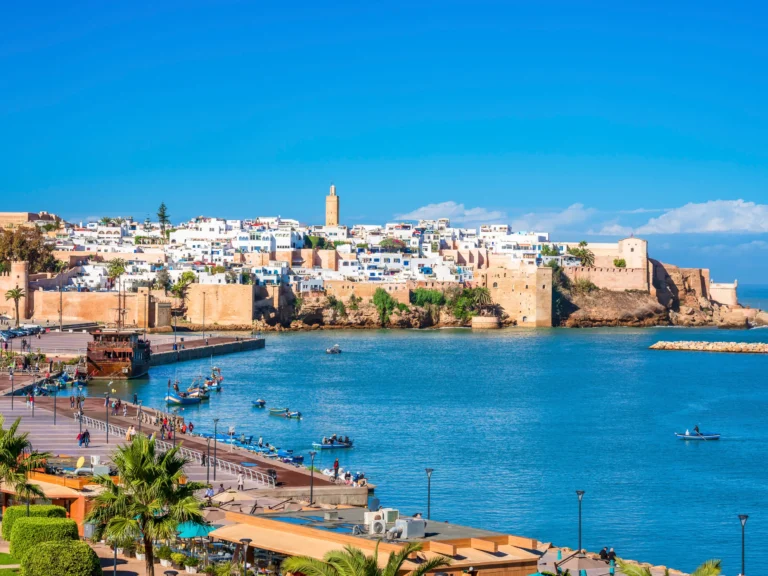Dubai businesses are hastening to seize new opportunities in Morocco following a significant trade mission that disclosed over $2B in UAE investments into the North African country and established numerous new partnership agreements.
The Dubai International Chamber trade mission to Senegal and Morocco, part of the broader “New Horizons” initiative to enhance relations with Africa, concluded this week in Casablanca after facilitating over 300 bilateral meetings between Dubai and Moroccan companies.
At a special business forum attended by over 420 business leaders and officials, Dubai Chambers signed four memorandums of understanding with key Moroccan entities – the Moroccan Investment and Export Development Agency (AMDIE), employers’ association CGEM, and the chambers of commerce for the Casablanca-Settat and Rabat-Salé-Kénitra regions.
The agreements set the stage for enhanced cooperation in organising trade missions, sharing expertise, and promoting mutual investment between Emirati and Moroccan firms across sectors such as agriculture, renewable energy, telecommunications, and business services.
Deepening Dubai-Morocco economic ties
In an exclusive interview with Arabian Business, Hassane Berkani, President of the Casablanca Chamber of Commerce, Industry and Services, praised the “close, brotherly bond” between Morocco and the UAE as the cornerstone of strengthening economic cooperation between the two nations.
“This relationship, which dates back to the time of Sheikh Zayed and King Hassan II, has opened the door for extensive collaboration in a number of fields,” said Berkani. “Investment is a notable area of collaboration. Due to the close relations between the two countries, the UAE is considered one of the largest investors in Morocco.”
Berkani emphasised bilateral agreements like the new partnership between the Dubai and Casablanca chambers as crucial to facilitating collaboration, especially in travel, hospitality, and real estate where “exciting opportunities” exist for UAE firms to invest in mega-projects like hotels, stadiums, and other infrastructure ahead of Morocco’s hosting of the 2030 World Cup.
“It is expected that a significant number of Emirati businesses will be operating in Morocco in the lead-up to the World Cup. The aim is to attract businesses that specialise in infrastructure and event planning,” he said.
$2.1B Dubai private sector investments in Morocco
While eager to attract more investment from UAE companies, Morocco is already a major destination for capital from the Emirates.
On the sidelines of the Casablanca business forum, Dubai Chambers President and CEO Mohammad Ali Rashed Lootah revealed that the total value of investments made by Dubai’s private sector in Morocco since 2021 has reached $2.1B.
“Morocco has always been considered a gateway to the African market and southern Europe, and we have seen further growth in non-oil bilateral trade between Dubai and Morocco in the last 5 years – it saw a growth rate of 37.5 percent,” said Lootah.
Lootah emphasised Dubai Chambers’ goal of “strengthening trade and investment relations between the business communities in Dubai and Morocco, building fruitful partnerships that serve our mutual goals and interests.”
Non-oil trade between Dubai and Morocco reached AED3.2B ($870M) in 2023, with Moroccan businesses comprising the fourth-largest number of active members of the Dubai Chamber at 850 companies, including 99 new members in Q1 2024 alone.
UAE emerges as Morocco’s largest Arab investor
According to Berkani, the UAE has become Morocco’s largest Arab investor with over $30B invested to date – a sum expected to double in the coming years following the announcement of major new partnerships during King Mohammed VI’s visit to the UAE in December 2023.
While providing no specific details, Berkani said “significant interest from Emirati businesses is anticipated” in Morocco, with UAE firms already closely collaborating with Moroccan partners across infrastructure, real estate, event management, and digitisation.
“These businesses provide invaluable experience, and Morocco hopes to leverage this to strengthen economic ties between the two nations,” Berkani stated.
The Dubai delegation’s visit follows the signing of a new investment charter offering legal incentives to attract foreign capital into Morocco. Berkani assured that foreign investors receive equal treatment to local businesses under Moroccan law across sectors such as tourism.
“Morocco’s legal system is designed to facilitate foreign investment – whether from the United Arab Emirates or elsewhere,” he said. “The goal is to add about 1.5M new hotel rooms in time for the 2030 World Cup.”
As Morocco and Dubai seek to leverage their deep historic ties and existing UAE-Morocco free trade deal to drive future economic integration, Berkani highlighted the countries’ key focus on promoting mutual prosperity:
“Historical and fraternal ties form a strong basis for Morocco and the UAE’s partnership. Both countries are collaborating closely to create new opportunities and promote economic growth in a variety of industries through coordinated efforts and shared objectives.”


